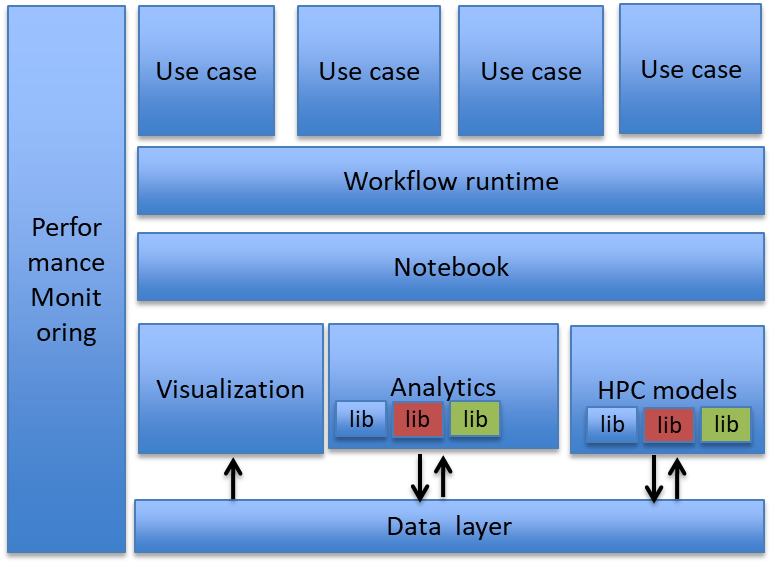As discussed thoroughly above the prediction of structure-property relations via modelling/numerical approaches, and the associated “in silico” design of novel materials is of paramount importance across several scientific disciplines and industrial sectors. Inevitably, the large-scale simulations of complex systems, as those proposed in the SimEA project (Themes 1 and 3), involves the generation of huge amounts of raw data, which usually are only analyzed for one specific purpose, instead of using it for a comprehensive analysis of other properties. This happens both because researchers do not know a priori what to look for, and because of the absence of intelligent, adaptive tools that are able to cope with the huge data sets.
Here, to address the above issues, we propose the development of a Software Platform (called Daedalus) that will consist of integrated and interoperable software tools/apps with versatile characteristics: From models and simulations, to statistical methods and processes design, using AI and big-data technologies (see figure below). A set of software tools and apps will be developed as a result of the successful implementation of the projects discussed in the previous RTs (1-4).

In more detail, the proposed software suite will be obtained via:
- Extending existing codes to make them compatible with open-source software in the community (e.g. Grommacs, LAMMPS) via a proper interface using modern languages (e.g. Python, C++). Well-documented codes will be validated in well-studied examples.
- Implementation of materials modelling workflows: We propose to compose a versatile software stack (modelling/optimization/statistical methods) that can execute workflow stages within self-sustained execution environments. First, specific problems are expressed in integrated workflows, and associated datasets by employing cutting-edge programmability and agile productivity techniques and embodiments (e.g. notebooks). Second, workflows are automatically mapped to the underlying software (modules) and hardware platforms and are executed.
- Scale-up algorithms and codes: All new algorithms/codes will be tested and optimized in large-scale computational infrastructures; first, in the new machine available at CyI (Cy-CLONE) and then in the European large pre-exascale infrastructures via PRACE.
- Building databases, with the developed molecular force-fields (PES/FES) and predicted properties of the model systems, in a standardised well-documented manner.
